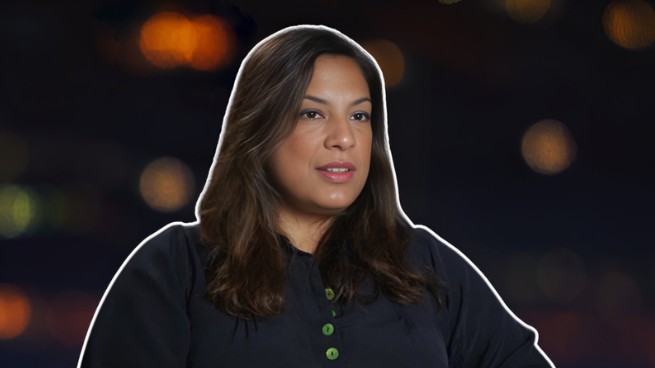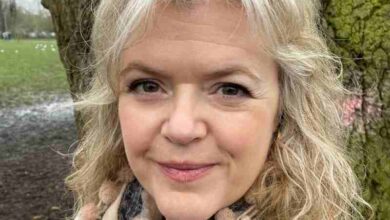Shaminder Nahal: Championing Bold Storytelling and Cultural Impact at Channel 4

Shaminder Nahal is a name that resonates with creativity, fearlessness, and journalistic integrity in British television. As the Head of Specialist Factual at Channel 4, she has become one of the most influential figures shaping the UK’s documentary and factual landscape. With a career marked by innovation, inclusivity, and a dedication to socially relevant storytelling, Nahal is redefining what it means to make factual content for a modern audience. Her work not only captures attention but often sparks national conversations.
Early Career and Background
Shaminder Nahal began her career in journalism, developing her craft through stints at prestigious platforms. She was notably part of the team at BBC’s flagship current affairs programme, Newsnight, where she contributed to investigative journalism and in-depth reports. Her transition to Channel 4 News saw her rise to the position of Deputy Editor, further sharpening her editorial vision and managerial acumen.
These formative years laid a strong foundation for her eventual role as Head of Specialist Factual. Her ability to combine news sensibility with a flair for storytelling would prove instrumental in redefining Channel 4’s factual output.
Leadership at Channel 4: Redefining Specialist Factual
In 2019, Shaminder Nahal took the helm of the Specialist Factual department at Channel 4. Her role involves overseeing a broad and diverse range of content—everything from historical documentaries and science features to contemporary social issues and arts programming.
Under her leadership, the department has flourished, regularly producing content that is both critically acclaimed and widely watched. What distinguishes Nahal’s commissioning strategy is her fearless approach to complex or taboo subjects and her commitment to giving voice to underrepresented communities.
A Portfolio of Cultural Relevance
Nahal has been the force behind some of Channel 4’s most impactful and talked-about programmes in recent years. These include:
- The Piano – A heartwarming and inclusive music competition series, which was not only a ratings success but also hailed for its emotional depth and diversity.
- Depp v Heard – A documentary that explored the legal battle between Johnny Depp and Amber Heard, offering a balanced examination of media narratives, public opinion, and justice.
- David Baddiel: Jews Don’t Count – A powerful exploration of antisemitism and the marginalisation of Jewish identity in progressive discourse.
- Grayson’s Art Club – Born during the COVID-19 lockdowns, this series brought art into people’s homes and showcased creativity as a means of coping with crisis.
- Investigating Diana: Death in Paris – A forensic look at the investigations following Princess Diana’s death, offering new insights into one of the most examined events in British history.
- The Extraordinary Life of April Ashley – A celebration of one of the UK’s first transgender icons, combining personal storytelling with historical significance.
These productions reflect not only editorial excellence but a clear strategic vision. Nahal aims to entertain, inform, and challenge, often within the same hour of television.
Emphasis on Diversity and Representation
A key hallmark of Shaminder Nahal’s leadership is her unwavering focus on diversity. She has actively promoted content that centres voices from minority communities and addresses themes of identity, race, gender, and class.
Projects like 100 Vaginas, Me and My Penis, and Kids (a documentary on children in care) have broken new ground in terms of subject matter and visual approach. They confront deeply personal and often uncomfortable topics with empathy, intelligence, and artistic finesse.
In addition, her involvement in Channel 4’s Black to Front initiative—an effort to amplify Black talent on- and off-screen—demonstrates her commitment to systemic change within the industry.
Championing Innovation in Factual Storytelling
What sets Nahal apart from many of her peers is her willingness to experiment with format and tone. Her slate includes traditional documentaries alongside bold hybrids that blend genres or incorporate interactive elements.
Take for example Munya Chawawa: How to Survive a Dictator, which fuses comedy with political reportage to examine the realities of dictatorship. It’s an example of how she supports younger, diverse talent in experimenting with how stories are told, making them more accessible to broader audiences.
This blend of innovation and social relevance has enabled Channel 4’s factual content to remain distinct, high-impact, and often trend-setting in the wider media landscape.
Engagement with the Industry and Beyond
Beyond her work at Channel 4, Shaminder Nahal is an active voice in the broader broadcasting community. She has served as a speaker at major international forums such as AIDC (Australian International Documentary Conference) and Realscreen Summit. These platforms have allowed her to advocate for more inclusive and courageous commissioning practices.
Her thought leadership is not just about content but also about process—how broadcasters commission, collaborate, and build trust with audiences and contributors alike.
Recognition and Impact
Shaminder Nahal’s achievements have not gone unnoticed. Industry accolades and nominations for the shows she has commissioned reflect the quality and originality of her vision. Yet perhaps more important is the social impact her work has had.
Viewers have praised her programming for creating space for honest conversations—whether about trauma, identity, mental health, or art. Her projects often go viral or spark online discussions, further cementing their relevance in public discourse.
Moreover, Nahal’s work has influenced younger commissioners and producers, particularly women and people of colour, who see in her a trailblazer and a mentor figure.
Looking Ahead: The Future of Specialist Factual
In a rapidly changing media environment, Shaminder Nahal stands out as someone who is not only keeping up but leading the way. With streaming platforms entering the factual space and audience expectations evolving, her department continues to adapt.
New commissions under her leadership include explorations into artificial intelligence, the lives of the Mitford sisters, and the legacy of Tony Blair. These projects suggest a continued focus on complexity, character, and cultural resonance.
As audiences demand deeper, more authentic stories, Nahal’s approach—anchored in integrity, boldness, and curiosity—seems more relevant than ever.
Conclusion: A Force for Good in Modern Media
Shaminder Nahal represents the best of British broadcasting: fearless, thoughtful, and deeply committed to public service. Her leadership at Channel 4 has expanded the boundaries of factual television, enabling the telling of stories that might otherwise remain unheard.
In a time where trust in media is fragile and audiences are more discerning, her work is a reminder that storytelling still has the power to illuminate, connect, and transform. As she continues to commission new and challenging work, one thing is certain: the future of factual programming in the UK is in excellent hands.



